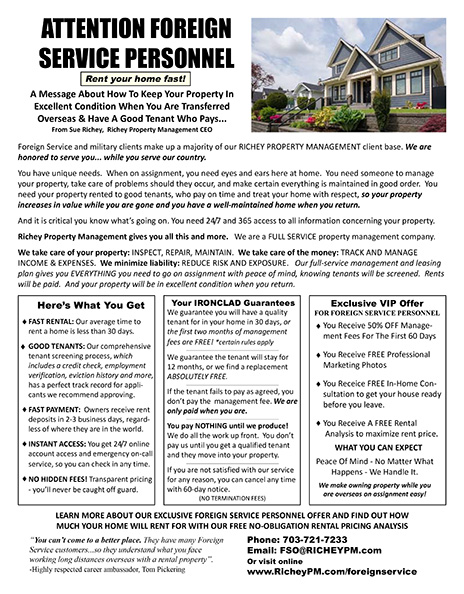Mental Health First Aid for Foreign Service Families
Here is a practical first aid kit for mental health for Foreign Service families.
BY LIA MILLER

Beth Walrond
“Nearly 20% of children and young people ages 3-17 in the United States have a mental, emotional, developmental, or behavioral disorder, and suicidal behaviors among high school students increased more than 40% in the decade before 2019. ... These trends were exacerbated during the COVID-19 pandemic,” the National Library of Medicine reported in 2022.
These sobering statistics mean that many Foreign Service children and families are experiencing mental health challenges, or will. And that is without accounting for the unique stressors of the Foreign Service lifestyle, such as constant relocation, which can be trying even at the best of times.
While moving and beginning new life chapters is always novel and exciting, it can and does take a toll, and often those who pay the highest prices for the Foreign Service lifestyle are our children and trailing family members. For families, the transition involves more than just adapting to a new culture and environment; it also encompasses managing the emotional and mental well-being of each family member.
Being able to recognize and address mental health concerns, particularly in teens and tweens, is a crucial aspect of ensuring a smooth and healthy adjustment to your new life abroad or back to the United States if you are returning home after some time overseas.
What Is Mental Health First Aid?
According to the Mental Health First Aid (MHFA) International website, MHFA is an evidence-based, early-intervention course that teaches participants about mental health and substance use challenges in adolescents.
It originated in Australia in 2001, when Betty Kitchener, a nurse specializing in health education, and Anthony Jorm, a mental health literacy professor, established Mental Health First Aid Australia, a national nonprofit charity focused on health promotion training and research. Later, Mental Health First Aid USA adapted the program and launched MHFA programs across the United States that have trained more than 15,000 MHFA trainers and some 3 million volunteers, including former First Lady Michelle Obama.
But what is MHFA exactly? The MHFA USA site explains: “Mental Health First Aid is a course that teaches you how to identify, understand and respond to signs of mental illnesses and substance use disorders. The training gives you the skills you need to reach out and provide initial help and support to someone who may be developing a mental health or substance use problem or experiencing a crisis.”
What it means to me as a parent of adolescents and why I proactively chose to become an “MHFAider” is that I wanted to develop the tools and resources to support and identify potential mental health challenges that my own children and their peers might face. Just as many parents go through standard first aid training, learning CPR, and what to do if someone chokes or is burned, it is equally important to develop the knowledge and skills to assist others when their injuries and challenges may not be visible in the same ways as a physical injury.
As an MHFAider, you are taught to observe the signs, symptoms, and behavioral changes caused by mental health disorders and to act as a support.
Many people may feel put off by the notion of becoming an MHFAider because, not being licensed mental health practitioners or clinically trained psychologists, they do not feel comfortable diagnosing mental health challenges and feel ill equipped or unable to assist. This is where the beauty of MHFA lies—there is no expectation that an MHFA volunteer is or acts like a licensed or clinically trained professional.
As an MHFAider, you are taught to observe the signs, symptoms, and behavioral changes caused by mental health disorders and to act as a support to someone facing a mental health challenge(s). In addition, you act as a connector, putting someone struggling with a mental health challenge in direct contact with trained professionals. As an MHFAider, you are not expected to diagnose, treat, or prescribe; your role is rather to be observant, supportive, and proactive.
Concerning Signs
Understanding mental health is the first step toward helping someone in need. Mental Health First Aid courses are available worldwide and are designed to teach people how to identify, understand, and respond to signs of mental illnesses and substance use disorders. These courses provide the skills needed to offer initial support to someone who may be developing a mental health problem and help connect them to the appropriate care.
Teens and tweens are at a particularly sensitive stage of life, even without the added stress of a major international move. The upheaval associated with relocating can exacerbate or trigger mental health issues. Here are some of the symptoms to watch for.
Changes in behavior. Look out for significant changes in sleeping patterns, eating habits, or a decline in academic performance.
Withdrawal. An increased desire to be alone or a lack of interest in previously enjoyed activities can be warning signs.
Mood swings. While some moodiness can be typical in teenagers, severe or rapid mood swings may indicate underlying mental health concerns.
Feelings of hopelessness. Pay attention if your child frequently expresses feelings of worthlessness or talks about self-harm.
The Benefits of MHFA
For Foreign Service families, becoming a Mental Health First Aider is not just beneficial—it’s essential. Here’s why.
Early intervention. Early identification and intervention can make a significant difference in recovery outcomes. Being a Mental Health First Aider equips you with the knowledge to recognize early signs of mental health issues.
Reducing stigma. By educating yourself and your family on mental health, you contribute to breaking down the stigma associated with mental illness. This creates an environment where seeking help and talking about mental health are normalized.
Crisis management. In a foreign country, finding immediate mental health support can be challenging. Mental Health First Aiders can provide crucial support and guidance during times of crisis until professional assistance is available.
Building stronger families. Open discussions about mental health strengthen the family unit, ensuring that every member knows they have support and understanding.
It is gratifying to know as an MHFA volunteer that there is a wide variety of support services and resources available through the State Department.
Resources at State
The Global Community Liaison Office (GCLO) offers on its public-facing website a comprehensive list of resources and services to support employees and their family members while on overseas and domestic assignments. Visit the GCLO List of Federal Agencies’ Employee Assistance Programs (EAP) webpage or contact GCLOAskSupportServices@state.gov.
The list includes the WorkLife4You (WL4Y) program, a DoS paid benefit program, that GCLO describes as the Department of State’s “24/7 comprehensive and confidential resource and referral service for employees and their family members.” WL4Y provides free 24/7 education and referral services that help State employees and family members find the programs, providers, information, and resources they need to manage personal and professional responsibilities.
Counselors will help determine what services are needed and available and refer to appropriate providers. Call them for personalized assistance, read articles and educational guides on their website, order topic-related kits, engage in monthly live talks, watch webinars and listen to audio programs, or ask for a free in-person elder care assessment from a qualified professional care manager.
By educating yourself and your family on mental health, you contribute to breaking down the stigma associated with mental illness.
Another excellent resource is Employee Consultation Services (ECS) in the Bureau of Medical Services (MED). According to State’s webpage, ECS “offers free, confidential counseling with professional clinicians to eligible Department of State employees and family members. They can assist with job stress, marital and relationship matters, parent and child dynamics, single parent and blended family concerns, school adjustment, elderly parent concerns, separation, loss and grief, acute and chronic medical illness, depression, anxiety, and other emotional or mental health challenges, financial concerns, life transitions, new career/retirement issues, and pre–post departure and reentry concerns.” Additional information is available in this ECS video on suicide prevention. Contact ECS at MEDECS@state.gov or call (202) 634-4874.
MED also offers the Child and Family Program. The mission of the office is to work with parents to assure children’s mental health and special education needs are identified and appropriately assessed, and that an effective treatment and educational plan is established in advance of and during overseas assignments. For more information about the Child and Family Program, please reach out to them at MEDCFP@state.gov.
For those abroad, a tremendous mental health resource is the regional medical officer psychiatrist (RMOP), who is assigned overseas and responsible to provide coverage in a geographic region adjacent to their home post. According to the RMOP webpage, the program was established at the time of the Tehran hostage crisis (1979-1981) and has now grown to 24 positions, the vast majority of these located at embassy health units. RMOPs are psychiatrists (medical doctors with additional training after medical school) who can provide consultations, medicating support, and some psychotherapy.
If your post is fortunate to have an RMOP, one only needs to make an appointment through the mission health unit. However, since RMOPs serve regionally and are not physically present at most posts, those in need of their services can either seek a referral through the local health unit, schedule an appointment when the RMOPs visit individual missions in their portfolio, or reach out to them via the “RMOP by Region Phone Book,” found on the State Department intranet.
Practical Steps to Maintain Mental Well-Being
Open communication. Create an environment where family members feel safe discussing their feelings without fear of judgment.
Routine. Establish a stable routine to provide a sense of normality and security amid the changes.
Social connections. Encourage engagement with the local community, and seek out groups or clubs with shared interests to help build a new supportive network.
Self-care. Model and stress the importance of regular exercise, balanced nutrition, and sufficient sleep as foundations for good mental health.
Professional support. If in doubt, seek assistance from a mental health professional. Many offer telehealth services, which can be an excellent option for FS families posted abroad.
There are many causes for adolescent mental health challenges, including moving to a new country, which, while challenging, can also be a momentous occasion filled with opportunities for growth and learning. By prioritizing mental health, destigmatizing and normalizing mental health treatment and seeking mental health services, and becoming equipped to offer support as an MHFAider, Foreign Service families can ensure that this adventure is a positive and enriching experience for everyone.
When sharing or linking to FSJ articles online, which we welcome and encourage, please be sure to cite the magazine (The Foreign Service Journal) and the month and year of publication. Please check the permissions page for further details.
Read More...
- “What About Our Kids?” by Kim Deblauw, The Foreign Service Journal, January-February 2016
- Mental Health Support for Foreign Service Children: Parents Weigh In, The Foreign Service Journal, June 2016
- “Resources for Raising Foreign Service Kids” by John K. Naland, Foreign Service Journal, October 2023





